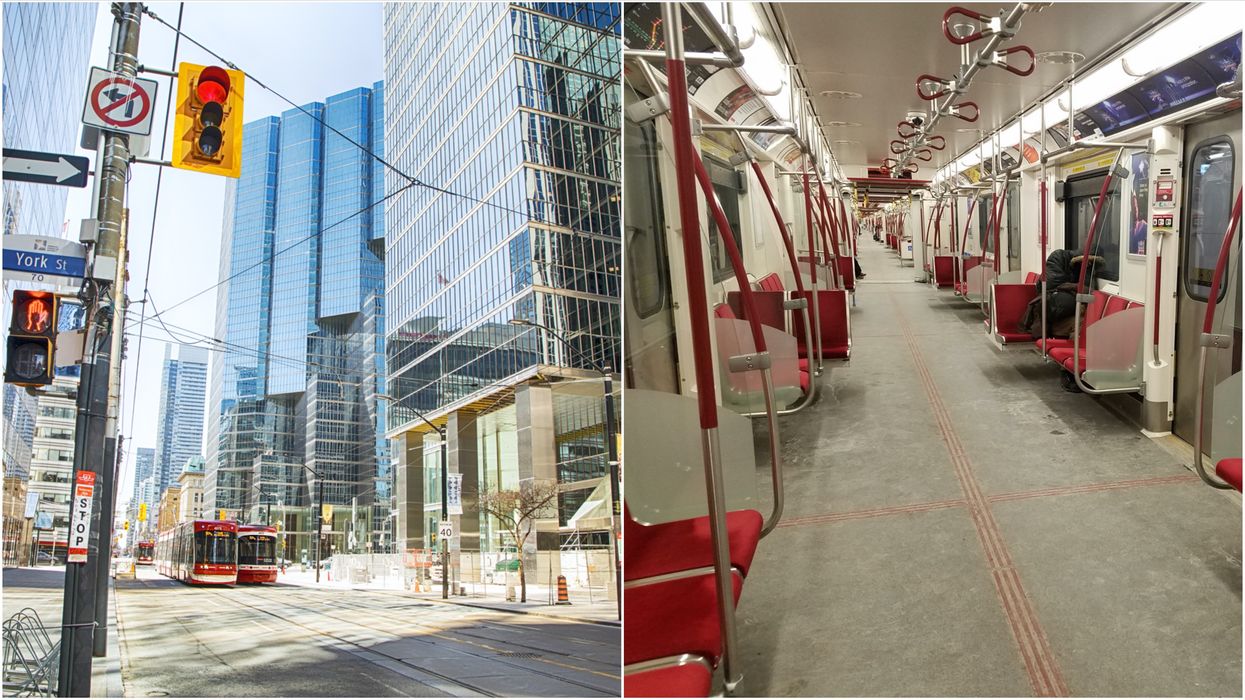WHO Official Urges Leaders To 'Stop Using Lockdown' As Their Main COVID-19 Control Method
Over the last two weeks, several Canadian cities, regions and provinces have entered a lockdown situation, or something similar.
While a regional lockdown approach has been used in other parts of the world during the pandemic, it’s a fairly new ball-game for the majority of Canada’s leaders.
There's no specific definition of the COVID-19 related term, and lockdown restrictions can vary depending on where they are being implemented.
That said, they often appear to involve closing up non-essential services and implementing stronger restrictions when it comes to socialization and travel.
However, back in October one World Health Organization (WHO) official urged world leaders to avoid using the practice as “a primary means of control.”
Editor's Choice: Two Provinces Just Announced They're Backing Out Of The Atlantic Travel Bubble
What does "lockdown" mean?
In this instance, there's no exact definition when it comes to being “locked down,” as it can mean different things in different places.
However, it often means a stricter set of rules have been put into place.
These rules can vary depending on exactly where you live, but they can affect factors like work, travel and how many people you can socialize with.
The restrictions can also affect whether businesses like restaurants, stores and leisure facilities are allowed to open.
For example, in Toronto and Peel, non-essential businesses have been shuttered as part of their local lockdown. This includes gyms and personal care businesses, as well as sit-down restaurant services.
In fact, those in Ontario’s lockdown areas are only supposed to leave their house for a couple of reasons!
Is Canada affected by "lockdowns?"
Last week, following a rise in COVID-19 cases, a lockdown period was announced for Ontario municipalities Toronto and Peel.
As of Monday, new rules were announced that are set to last at least 28 days, including no indoor social gatherings with people from other households.
According to Global News, both Manitoba and Nunavut have also recently confirmed two-week "lockdowns" of their own.
On Monday, Newfoundland and Labrador and P.E.I. announced that they’d be pulling out of the Atlantic travel bubble.
It’s hoped that this move will allow both provinces to avoid implementing further restrictions.
What did the WHO official say?
In an interview with The Spectator, a World Health Organization (WHO) special envoy revealed that lockdowns were not necessarily the best way of controlling COVID-19.
Speaking last month, Dr. David Nabarro explained, “We in the World Health Organization do not advocate lockdowns as the primary means of control of this virus.”
He says the devastating impacts on businesses and tourism, as well as those living in poverty, are potential consequences.
“The only time we believe a lockdown is justified is to buy you time to reorganize, regroup, rebalance your resources, protect your health workers who are exhausted.”
“But by and large, we’d rather not do it,” he added.
According to Newsweek, this advice is supported by over 6,000 scientists, who signed an anti-lockdown petition back in October.
*This article's cover image is for illustrative purposes only.
